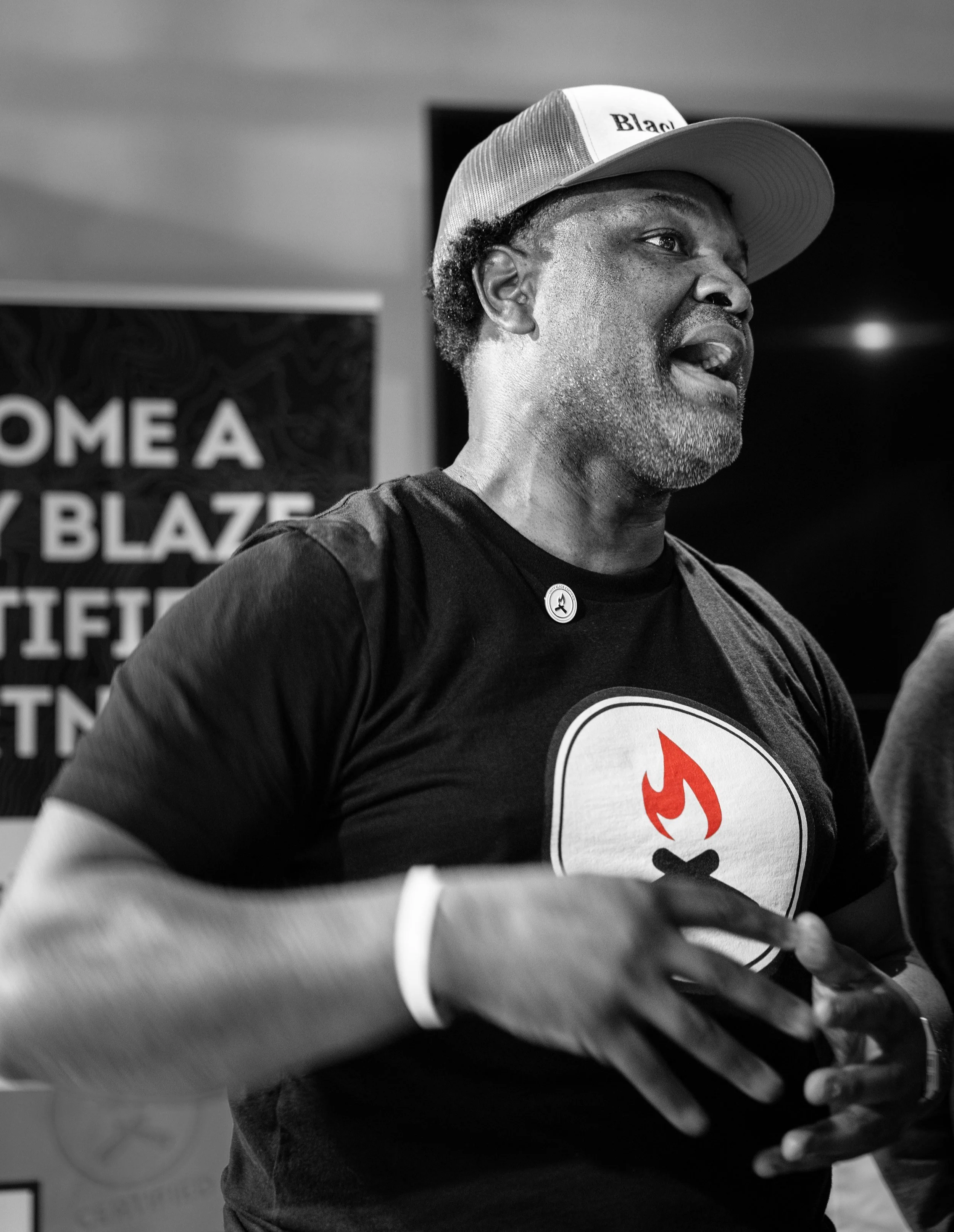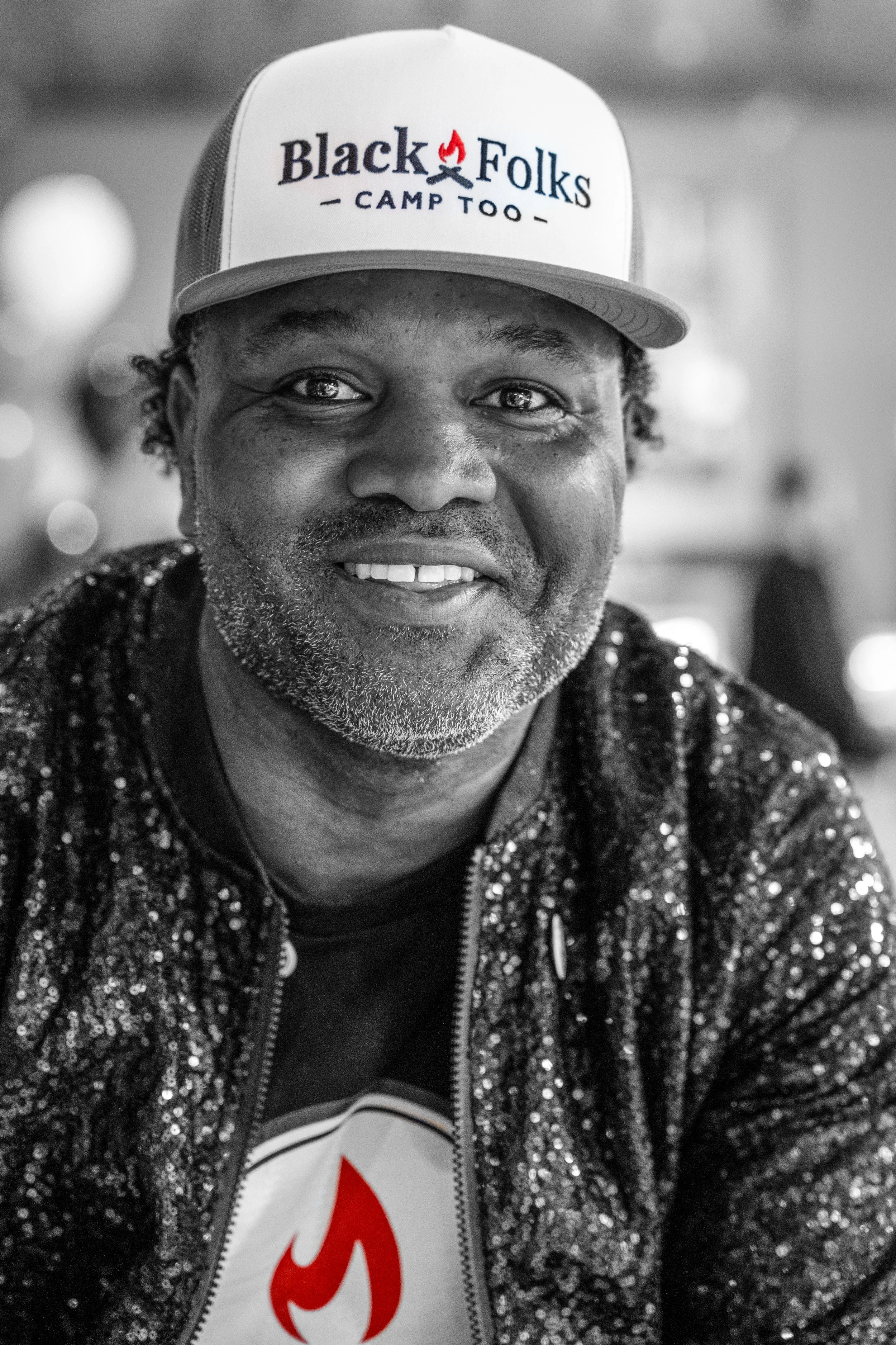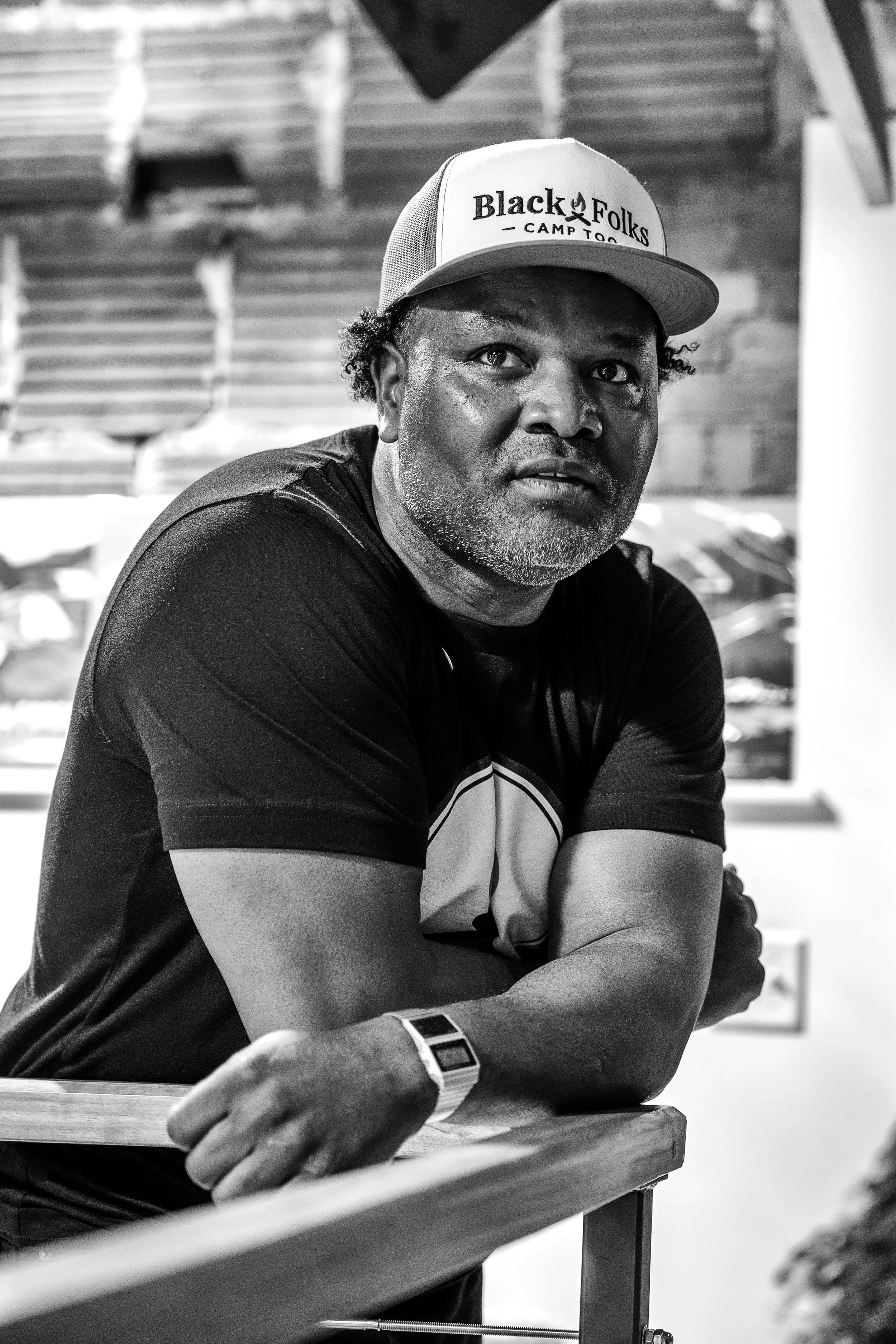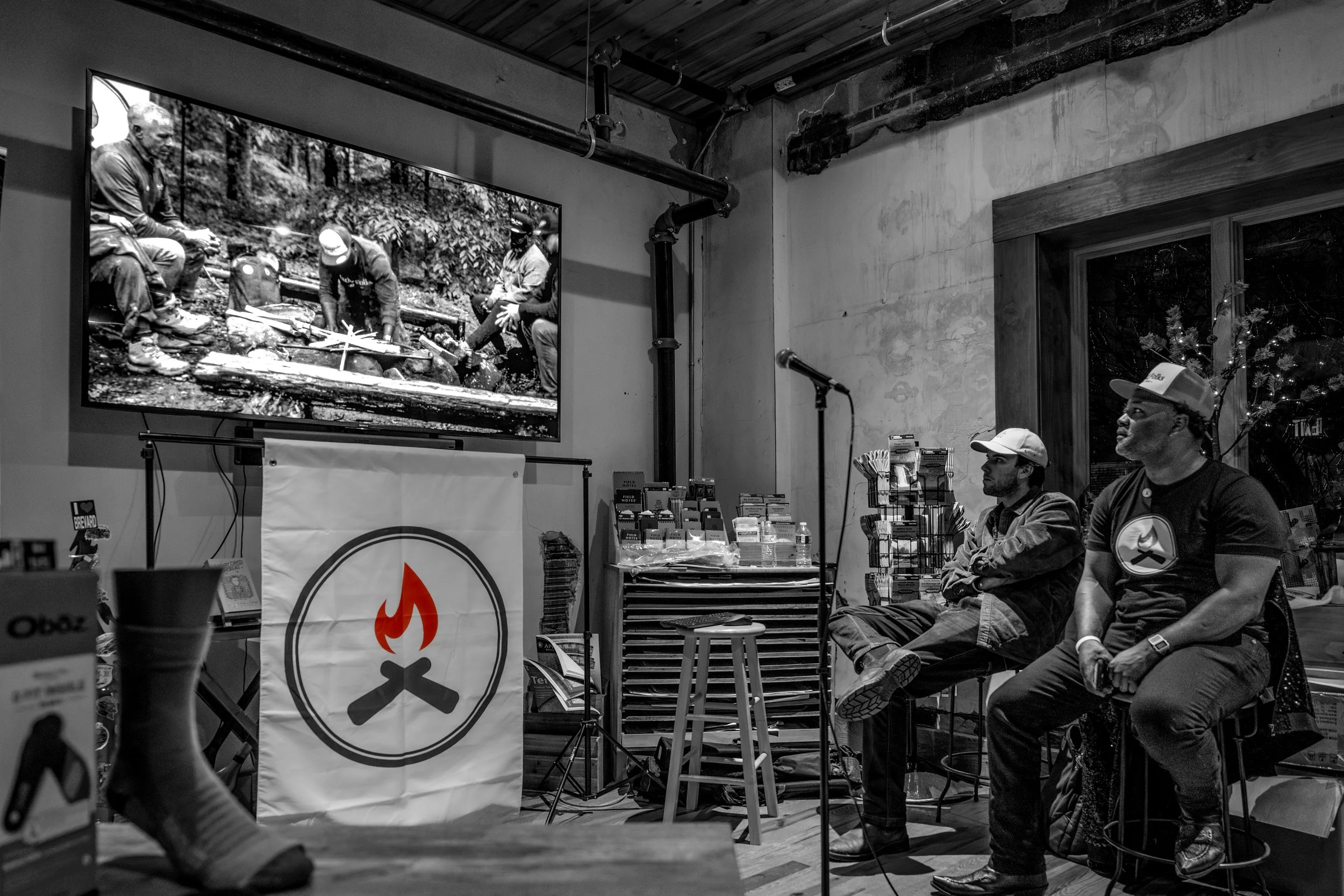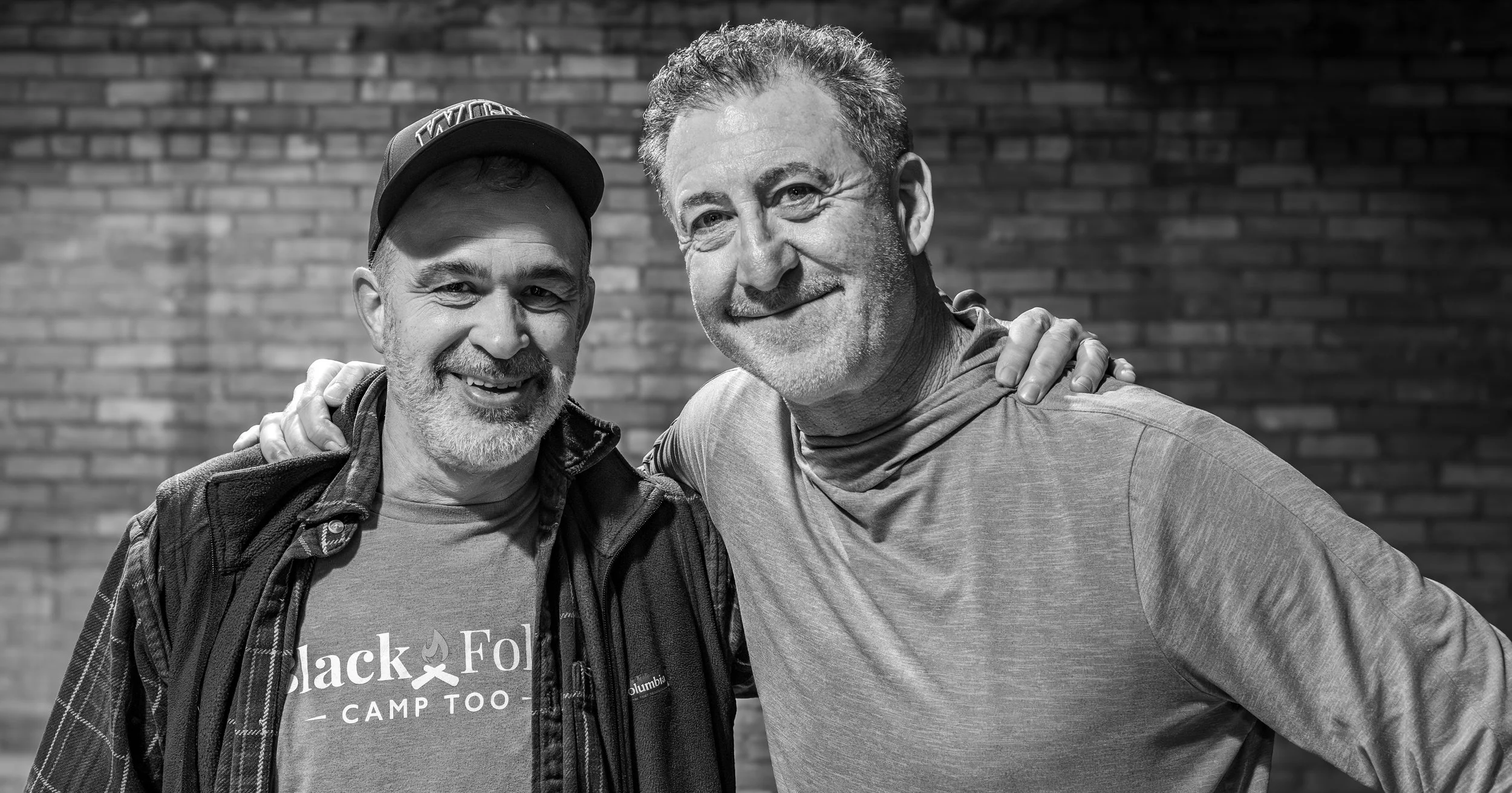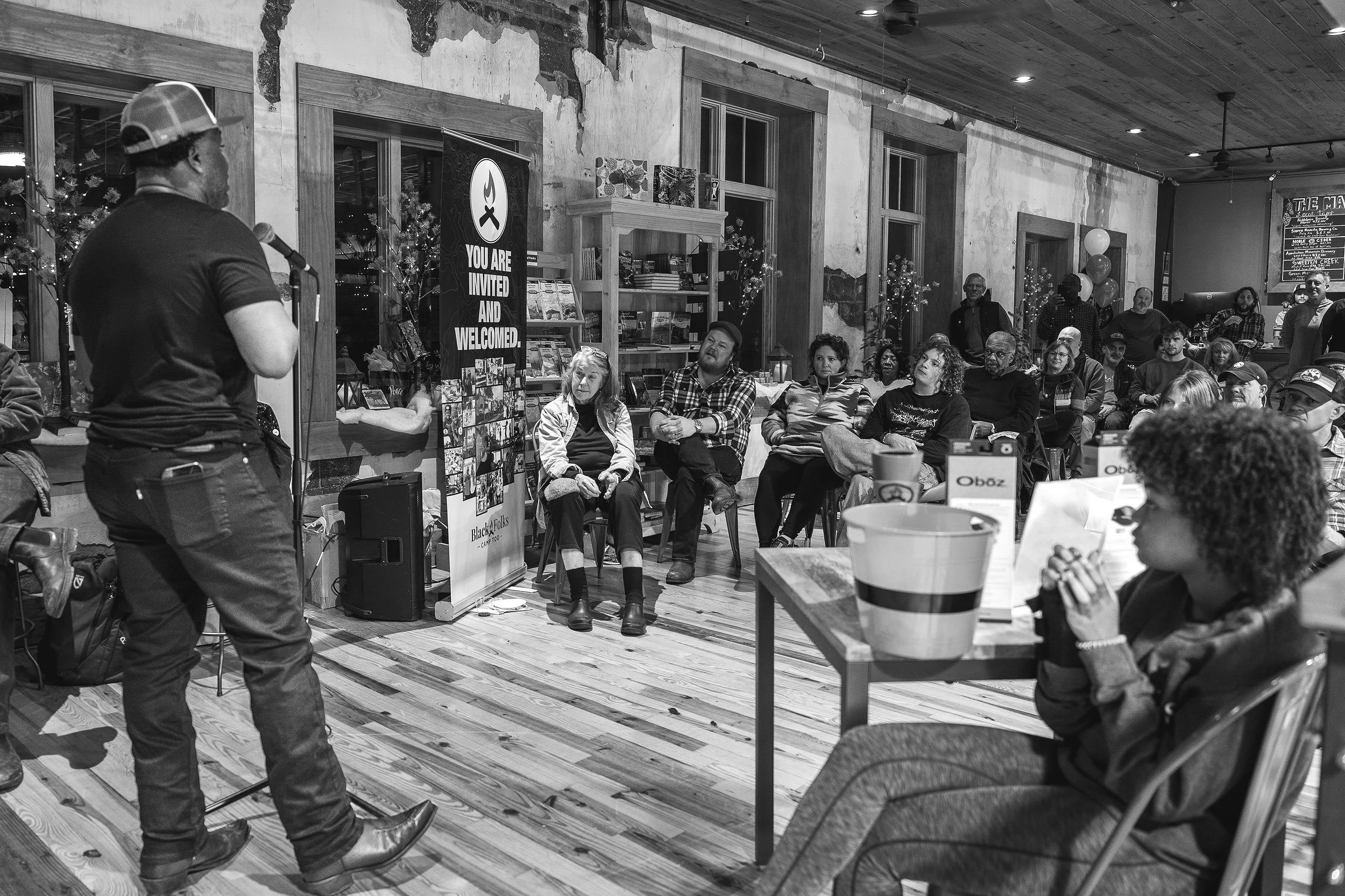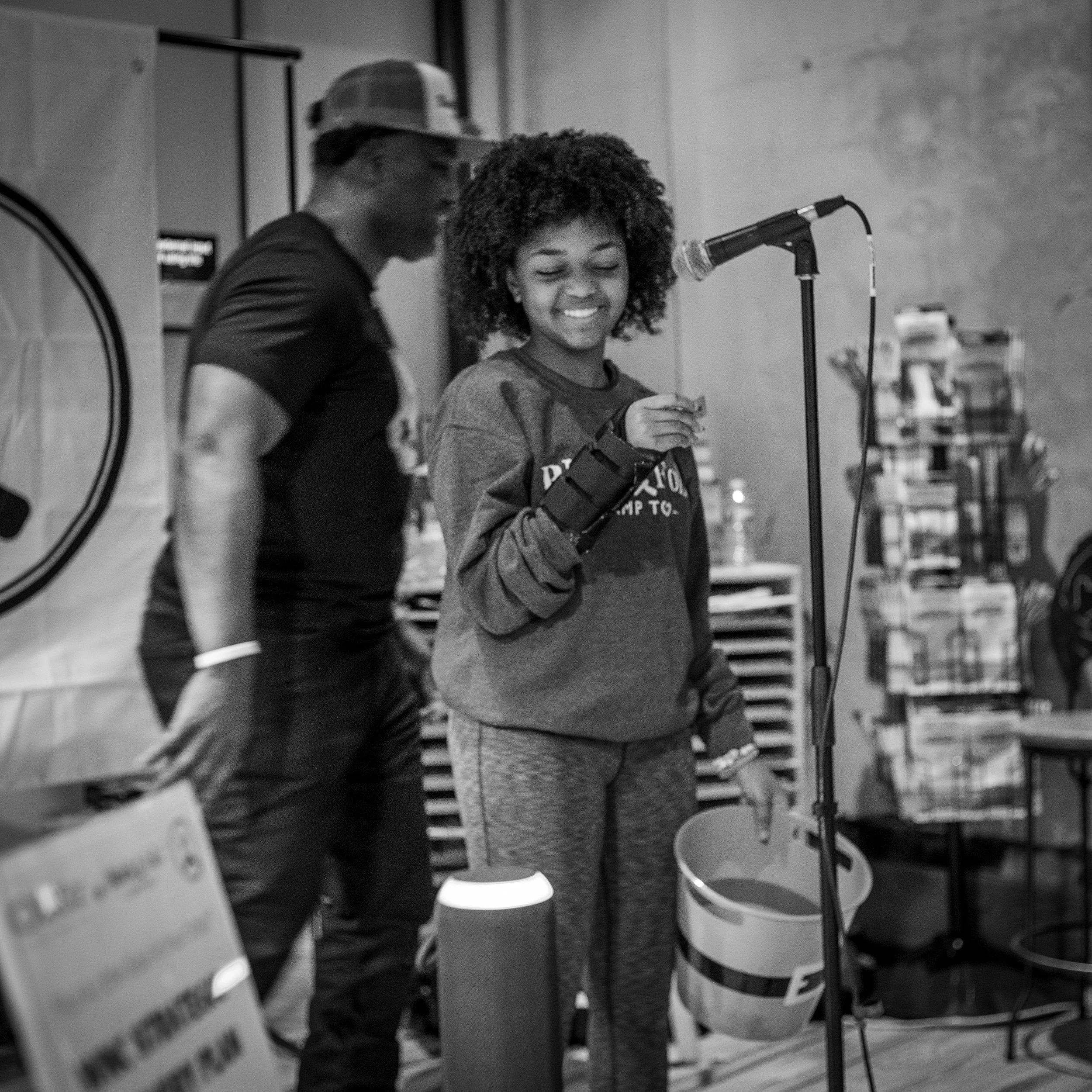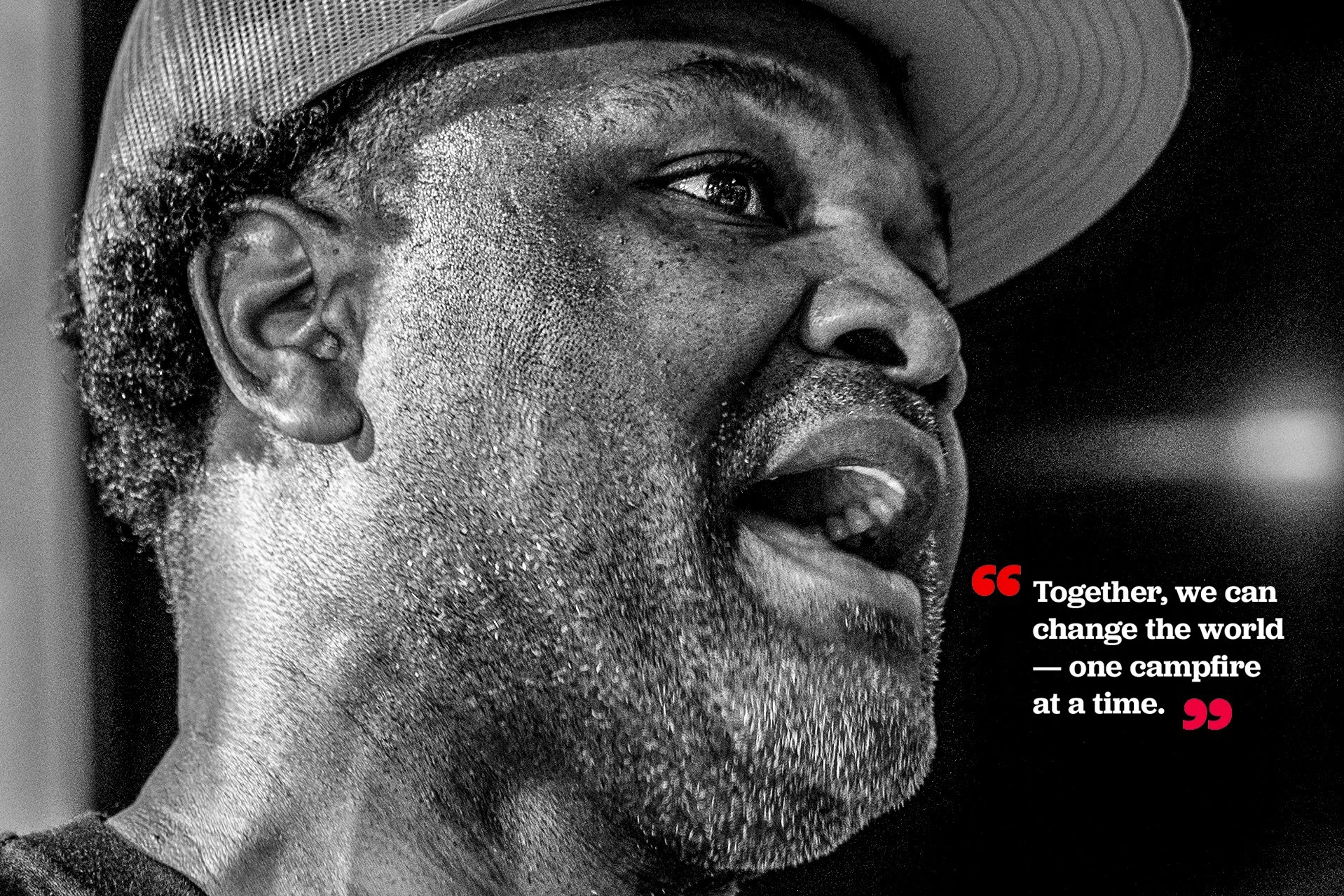Earl B. Hunter Jr.: A Man on Fire for Unity in the Outdoors.
Earl B. Hunter Jr. © Brody Hartman
“The campfire is the oldest form of light, heat, cooking, and gathering,”
Earl B. Hunter Jr., the founder of Black Folks Camp Too (BFCT), is a force of nature for nature. An outdoor industry executive and former college football player who runs through life with the urgency of a sprinter and the endurance of a marathoner, he is equal parts evangelist, entertainer, and entrepreneur. Earl’s vision weaves together a powerful dual purpose: inviting more people to experience the outdoors while nurturing deep connections that transcend barriers of race, age, gender, and ability.
If you follow Black Folks Camp Too on Instagram, you’ll witness his relentless pursuit in action—traveling the country to speak at major outdoor industry conferences and expos, meeting with industry executives, State Park/DNR(Department of Natural Resources) directors, or walking the sidelines of an HBCU (Historically Black College Universities) championship game, proudly holding the Black Folks Camp Too banner.
His signature look is a brand in itself: snapback cap, t-shirt, and pins, all emblazoned with the Unity Blaze logo—a fitting representation of the mission at the heart of his work. The Unity Blaze is more than a logo; it’s a powerful symbol of inclusion, connection, and community. “The campfire is the oldest form of light, heat, cooking, and gathering,” Earl explains. “It’s where we find connection and how we’ll create unity.”
I photographed Earl for this Portrait of Purpose at the screening of We Are Here, a mini-documentary about Back Folks Camp Too originally aired on PBS.
Earl B. Hunter Jr. © Brody Hartman
For Earl, this mission is both personal and strategic. A former RV industry executive, he grew frustrated with being “the only Black executive in the room.” He recalls, “I got tired of looking around and thinking, why am I the only one here? More folks like me should be sitting at these tables, strategizing and helping the industry realize they are missing billions of dollars. Black folks are part of the emerging demographics and part of the larger consumer base in the country. If more of us are at the table helping grow the RV and outdoor economy, then everyone wins.”
This realization and his understanding of the barriers keeping a majority of Black Americans from enjoying nature and participating in the outdoor industry led him to create BFCT in 2019. “I knew why many Black folks weren’t going into the outdoors,” he explains. “But I needed to quantify it with data, not just opinions. I don’t call folks out; I’d rather call folks in.”
From Fear to Belonging
BFCT identifies three primary reasons why the majority of Black Americans have historically been underrepresented in outdoor spaces: generational fear, lack of knowledge, and a lack of intentional invitations.
“Generational fear is huge and rooted in segregation,” Earl explains. “Black folks are the only race in America that had laws to keep us out of nature. Many state and national parks were segregated as recently as 1965,” he continues.
“My great-grandmama told my grandma, who told my mama, who told me: ‘You don’t belong in those woods with those white folks. They’ll kill you out there.’”
He points out that knowledge gaps are another significant barrier: “Many of us don’t know what to do because we haven’t visited national and state parks, or other public natural spaces. Some of these spaces are just a few miles from our homes.”
Finally, Earl highlights the importance of invitations: “The outdoor industry never asked for our money, our time, or welcomed us in. It is not just about class or income but about fear, knowledge, and feeling excluded. The Good Times folks didn’t go outdoors for the same reasons The Huxtables didn’t go. So we know it’s not about class or income.”
“Generational fear is huge,” he explains. My great-grandmama told my grandma, who told my mama, who told me: ‘You don’t belong in those woods with those white folks. They’ll kill you out there.”
The Heart of Connection
For Earl, the solution begins with communication and relationships. "You can't rely on groups and clubs to do all the work," he says. "It's about individual relationships. If my friends know I have generational fears, and they love the outdoors, and they know the outdoors would be good for me, then it's their job to invite me into those spaces and my job to accept the invitation. We call it The Unity Blaze Way."
“Many of us don’t know what to do because we haven’t visited national and state parks, or other public natural spaces. Some of these spaces are just a few miles from our homes.”
Wes and Andy in attendance at the documentary screening of We Are Here.
Earl's introduction to backpacking exemplifies the power of thoughtful, intentional invitations to create trust and connection. After launching Black Folks Camp Too at the 2019 Outdoor Economy Conference, two professors from Western Carolina University, Wes Stone and Andy Coburn, approached Earl with an idea: "We're going to take you backpacking." Earl was hesitant at first, admitting, "I didn't respond to their first email. Or the second."
Their persistence, coupled with genuine care, made all the difference. Earl recalls, "They made sure I felt prepared and supported. They sent me a packing list, loaned me gear, gave me their phone numbers, and even met me at a store so I wouldn't have to drive to the trailhead alone." This level of care eased his fears and built trust in an unfamiliar environment.
Reflecting on the trip, Earl said, "They did everything right. They removed my fear, shared knowledge, and invited me. It showed me the BFCT model of overtly inviting people works." During the trek, the soles of his sneakers came apart, and the group had to tape them back together with duct tape, yet he completed the ten-mile hike.
This transformative experience reinforced Earl's belief in the importance of personal invitations and demonstrated how small, intentional actions can foster inclusion and belonging. "That trip showed me the power of relationships to break down barriers and create new possibilities," Earl shared. "Again, we call it The Unity Blaze Way.
Return on Inclusion: Capitalism As Catalyst
Earl's approach to creating change is unapologetically tied to capitalism. "America is a capitalist-driven country," he says. "Nothing gets done unless it's tied to capital, whether you like it our not.” That's why BFCT is a business, not a nonprofit. If nonprofits who do this type of work could solve these problems alone, they would've done it already. For-profit and nonprofit models are needed to solve these issues. When companies realize that inclusivity is profitable, that's when change happens."
He believes that the real impact happens once capital is aligned with inclusivity. "When you tie inclusivity to capital, all the kumbaya stuff will follow right behind it," Earl explains. "It's not the other way around. Kumbaya won't bring the capital—capital brings the kumbaya."
This philosophy, which BFCT calls "Return on Inclusion," is central to its vision. "If we don't invite and welcome more emerging demographics, the outdoor industry will fail. That's not an opinion; that's based on data." BFCT is focused on inviting everyone into the outdoors—every race, age, gender, and ability is recognized and respected. "It's not just the right thing to do. It also bodes well for industry, for nature, and for humanity," Earl explains.
Earl B. Hunter Jr. sharing the mission of Black Folks Camp Too at DD Bullwinkel’s Outdoor store in Brevard, NC.
Earl B. Hunter Jr. © Brody Hartman
BFCT leadership team sharing recent successes. © Brody Hartman
“That's why BFCT is a business, not a nonprofit. If nonprofits who do this type of work could solve these problems alone, they would've done it already. For-profit and nonprofit models are needed to solve these issues. When companies realize that inclusivity is profitable, that's when change happens.”
Kindling the Flame of Unity: A Legacy of Purpose
Earl’s daughter, “Fuzzy”, calling out raffle ticket winners at the screening of We Are Here, a documentary about Earl and Black Folks Camp Too. © Brody Hartman
Earl's vision transcends the outdoor industry. "I'm not doing this work just for Black folks," he explains. "This is about creating unity in the outdoor community and beyond. And I mean real unity. Folk can argue about anything in the world, but you can't argue with unity in the outdoors, and when you do, I know who you are."
For Earl, the campfire is both a literal and symbolic tool for fostering connection: "When people gather around a campfire, there are no walls. Conversations happen. Folks realize they have more sames than differences. That's how change starts."
Earl's commitment to unity runs deep, reflecting a core belief his mother instilled in him. "My mom, all my mom knows is this one thing: to care for people." He adds, "My mama would give you the shirt off her back, even if she didn’t have one to give." Her generosity and resilience shaped his sense of duty to serve others.
Earl's sense of purpose is also grounded in a vision for future generations: "I have a fiduciary duty to my children's children's children—and to your children's children's children," he says. "In 20 years, I want them to say, 'We don't have to talk about this anymore, because the outdoors will already be inviting and welcoming to everyone."
BFCT is having a tangible impact. In 2024, they made significant strides by relaunching its Unity Blaze Academy, which offers comprehensive courses aimed at empowering businesses, professionals, and educators to foster inclusivity in the outdoors. Additionally, several State Parks, DNR and Trail systems partnered with BFCT to implement the "Return on Inclusion"training for their staff, broadening access to outdoor spaces.
Higher education institutions also adopt BFCT’s vision, as evidenced by Lees-McRae College, which became the first school to certify all of its Outdoor Recreation Management students in Unity Blaze principles, ensuring that the next generation of leaders will champion inclusivity.
Earl's resolve for massive change grows stronger with every success, fueled by his unwavering passion and fire: "I'll go if I have to go by myself," he declares. "But I know I'm not alone." His work demonstrates that small, intentional actions can create a ripple effect, transforming the outdoor industry and how people connect. "The campfire is where the magic happens," Earl says. "That's where we remove fear, share knowledge, and invite everyone to belong." His work is a reminder that lasting change happens one conversation—and one campfire—at a time.
Earl B. Hunter, Jr. © Brody Hartman

